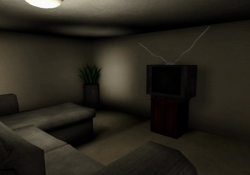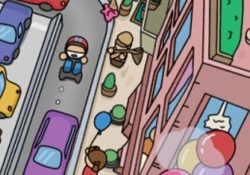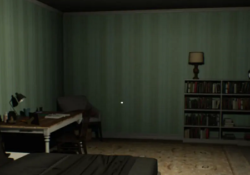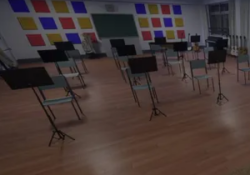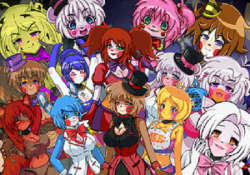The Boba Teashop is a narrative-driven game that blends light business simulation with unsettling psychological elements. You play as Risa, a woman who walks away from her stressful office life to open a small bubble tea shop. At first, the experience is peaceful—preparing drinks, greeting customers, and maintaining the shop space. But as the days pass, the calm routine begins to shift, revealing something far more mysterious beneath the surface. The game carefully balances mundane tasks with growing tension, making the ordinary feel increasingly unstable.
Brewing Drinks, Managing Time
At its core, the gameplay loop centers around preparing boba tea orders and keeping the shop clean. Players must select ingredients, assemble drinks according to each customer’s request, and keep up with the pace of business. Orders range from basic milk teas to more complex combinations, and cleanliness affects customer satisfaction. While these tasks start off simple, the stress begins to build as things start to go subtly wrong—misplaced objects, customers who stare too long, and whispers that weren’t there yesterday.
Gameplay features include:
- Assembling boba tea recipes with timed preparation steps
- Interacting with a variety of customers who change over time
- Managing cleanliness and restocking ingredients
- Experiencing visual and audio distortions as the days progress
- Making choices that influence how Risa perceives her world
When Routine Starts to Fracture
The most unexpected part of The Boba Teashop isn’t what you do—it’s how it feels. As the week unfolds, strange events begin to interrupt the daily rhythm. A cup moves on its own. The background music glitches. A familiar customer forgets their name. The shop remains physically the same, but something invisible begins to press in. Through these slow-building moments, the game shifts from cozy to eerie without ever becoming fully horrific. Instead, it leans into a psychological unease that keeps players alert and questioning what’s real.
The story doesn’t reveal itself all at once. Instead, it hides in background details, brief lines of dialogue, and the way Risa reacts to subtle changes. The player is left to interpret what’s happening—whether it’s burnout, grief, or something more surreal. The absence of clear answers is part of what gives the game its weight.




